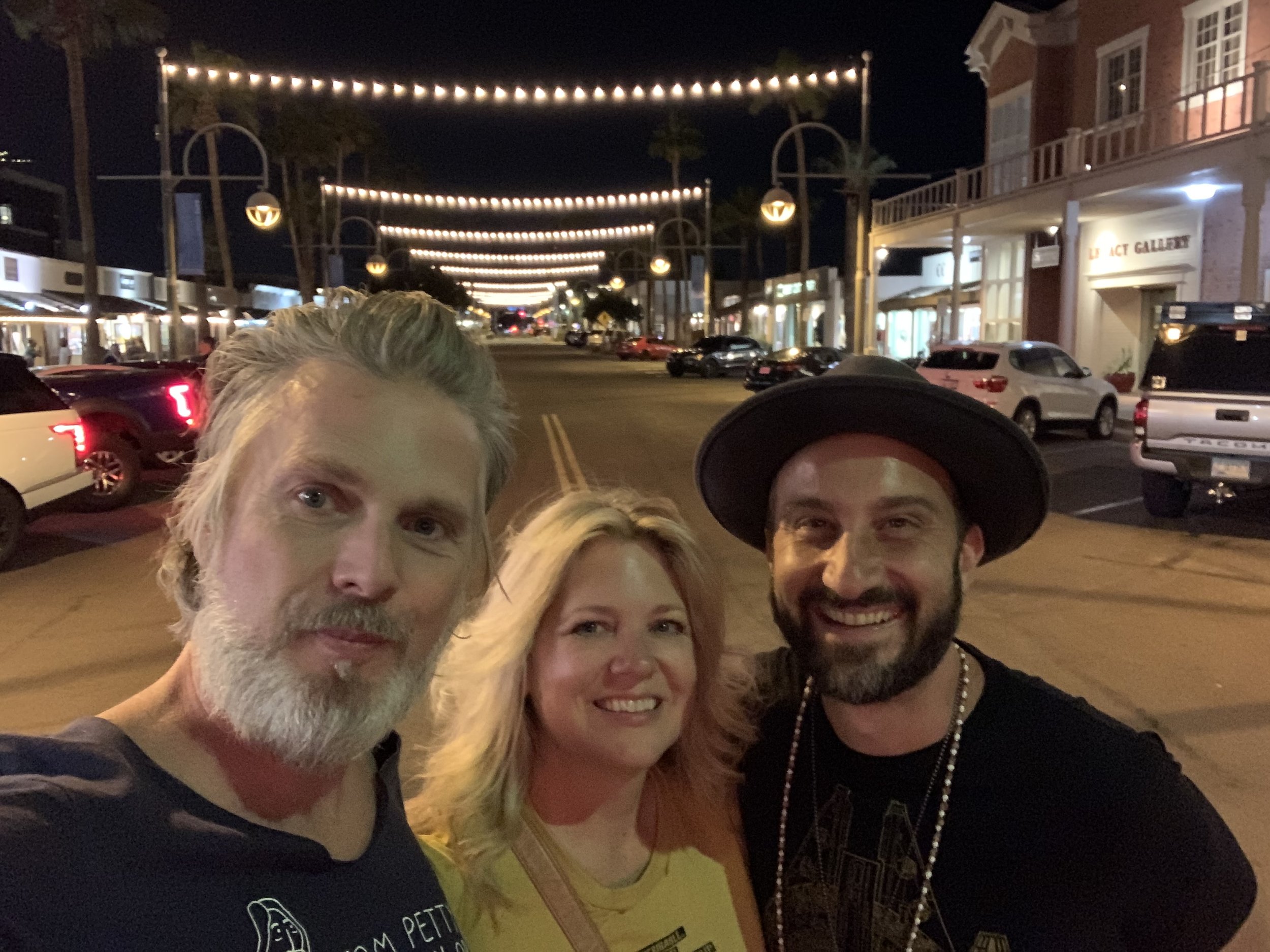A day of recovery was in order, so I spent most of the next day reading. My friend Darice with Desert Valley House Concerts told me, “You should read this book.” I have been gobbling it up like a hungry hungry hippo.
At the moment, it’s all I find myself wanting to talk about. So, what is the book about? It’s about Quantum Physics and reality. All of the discoveries made by the Quantum Physicists of the 1900’s and 2000’s. Tangible reality. Is this reality objective? Older sciences before Quantum Physics have never taken into account the role of consciousness into this equation.
We are not inactive observers of reality. We are simultaneously observing it and creating it. An analogy that is accurate, is reality being like a dream. As we sleep and experience the dream, we feel like merely a participant—however we are also simultaneously creating the dream we are experiencing subjectively.
Quantum Physics for the past 100 years has been finding this exists in our observation/creation of reality (The Universe).
An example: “The Double-Slit Experiment”
https://en.m.wikipedia.org/wiki/Double-slit_experiment
This and many subsequent experiments points to the direction that we are not and never will be independent entities in the Universe. We, in fact, live in a participatory Universe, whether we particpate or not. What does this mean?
Everything we do, or don’t do, alters that which is around us. Everything is probability, much like the second law of thermodynamics. A quantum computer, is a direct reflection of this notion.
It's a direct reflection of reality. It's more powerful as a computer because we are designing something that is closer to the function of nature. Probability. It takes into account as many possibilities as possible, and runs on this very notion.
It's like the second law of thermodynamics. Just because we have never seen a shattered glass move backwards into a solid form of un-shattered existence, does not mean that it can't happen. Quite the contrary. Mathematical probability shows us that it CAN exist, even if the probability of it is low.
A quantum computer is taking all possibilities into account, much as reality does, apparently. Probability wave.
I don't completely understand all of this—but this book is helping me to get a general sense of what quantum physics is.
It's both freedom and probability. That we are an active part of the Universe, whether we try to be or not. If you find this alarming to read. It’s okay. Einstein did too. He saw that is was real and how experiments such as the double-slit experiment verified these notions, and this is why he found it so hard to accept, as its very notion contradicted classical concepts of sciences. The very notion of science is to maintain a detached observation of reality around us, at least, in a traditional sense maintained over the corse of pre-existing efforts in understanding reality (The Universe).
It's like a dream. We feel like a participant in the dream while we sleep, but we are actually making the dream that we feel like we are along in the ride for! It's magic, in a sense. And reality: it functions the same way.
Nature only appears to be objective, to those who want to see it that way. If we realize that we are the active imagination of all probability, we realize we are actually not outside of the Universe, but helping it to become what it is at every moment, regardless of whether we try to or not. We simultaneously are spectator and creator, creating as we spectate, and spectating as we create.
The craziest thing, is that nature seems to reinforce whatever we “want” to see, speaking outside of the boundaries of quantifiable experimentation. If a group of persons wants to believe that they are outside The Universe, observing it in a cold and detached manner in a subjective stupor, feeling that their actions/inaction play no role in the constant creation, nature does not argue. It’s simply reinforces that possibility like a warm blanket.
If however, people take the time to really try to see that reality (The Universe) is probability, than they collectively realize that everything is a possibility, no matter the small nature of the number describing the probability of the action: i.e. a shattered glass becoming whole again before your eyes. That is real statistical analysis of a shattered glass. There exists the minute possibility of it becoming whole again.
In the words of the standup comedian Bill Hicks: “Young men on acid realize that all matter is merely energy condensed to a slow vibration—that we are all one consciousness experiencing our self subjectively. There is no such thing as death. Life is a dream, and we are the imagination of ourselves. Here’s Tom with the weather.”
And let there be no doubt, the weather didn’t disappoint. It’s the tail-end of monsoon season in Arizona. Micro-bursts are abound. They pickup patio furniture to great heights, only to drop them in places the owners of which might not agree with. I quickly helped Darice to collect her patio belongings under the confines of cover, to prevent mother nature’s exterior decorating options.





































